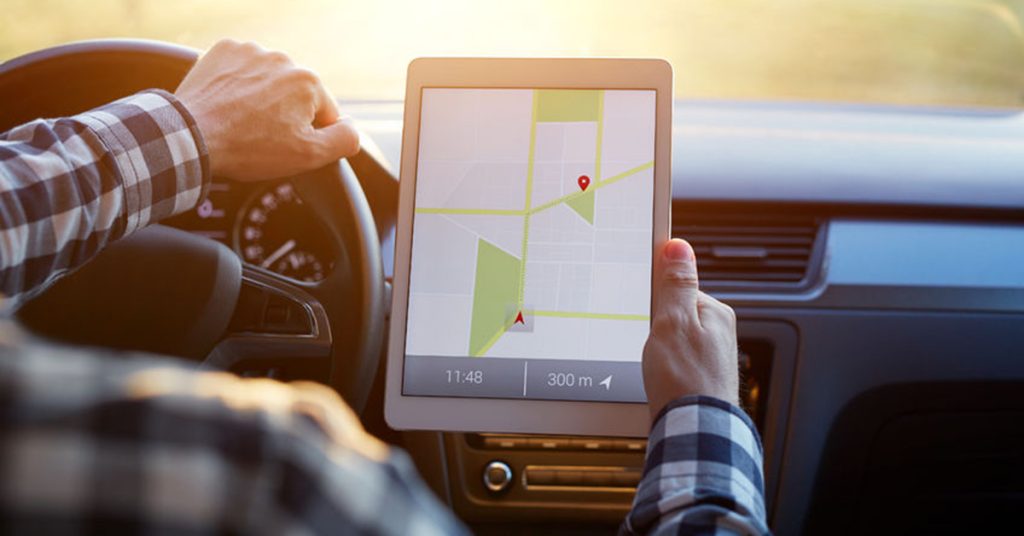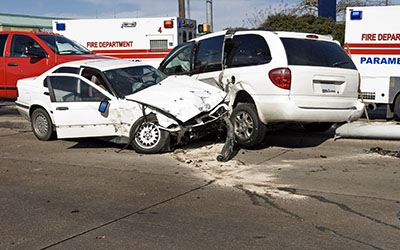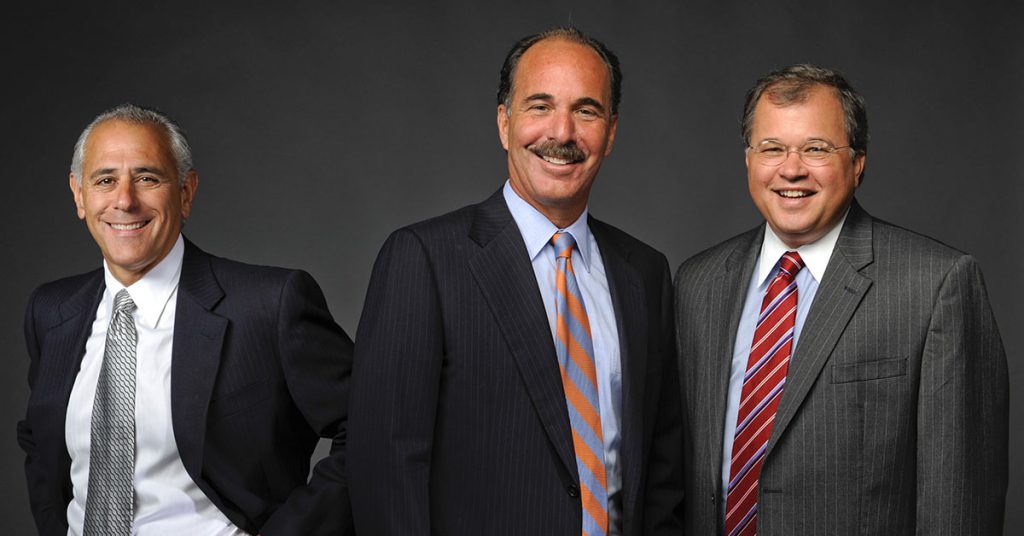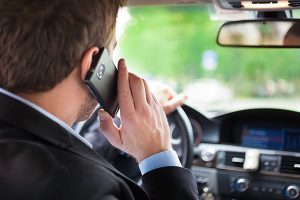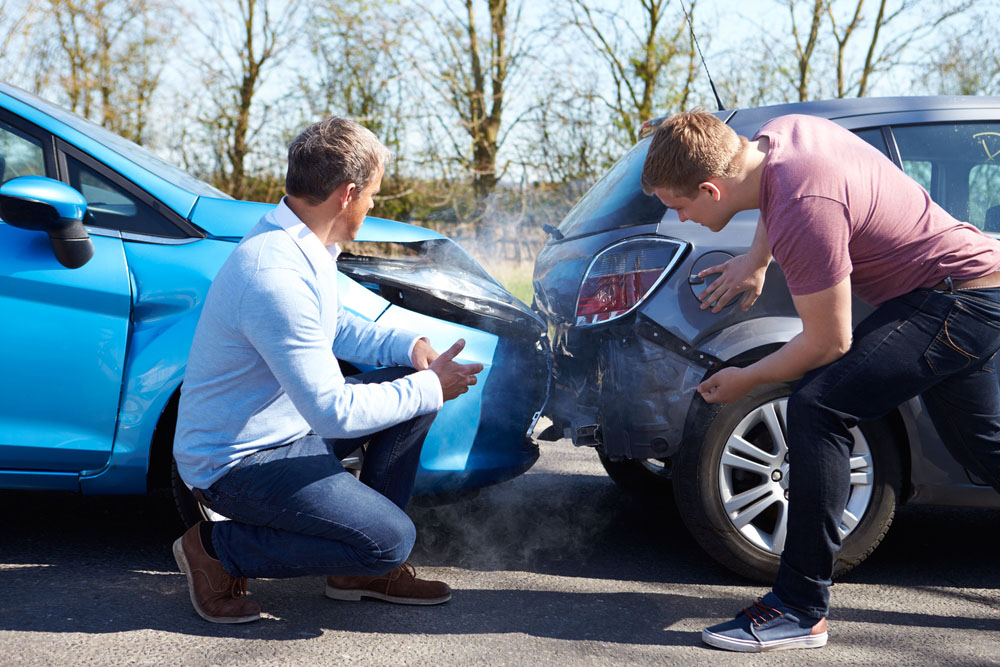Motor Vehicle Accidents
Massachusetts Communities Fight Back Against Traffic Detour Apps

Local communities are restricting road use to stop the flood of drivers who use Waze and other traffic apps.
Commuting is a battle in Massachusetts, full of frustrations and hazards. But residents, communities and lawmakers continue to fight back to improve safety.
On Monday, the state House of Representatives considered a controversial bill proposing new fines for jaywalking and jaywalking while distracted (or as The Boston Globe writes, “Jay-texters”). Meanwhile, WBZ reports communities are closing off roads in response to traffic apps such as Waze and Google Maps.
Jaywalking Bill. On Beacon Hill, Rep. Colleen M. Garry, D-Dracut, has proposed Bill H.1834, which would allow cities and towns to impose stronger penalties against jaywalking. The current penalty is $1, which isn’t much of a deterrent. But this new bill proposes:
- Jaywalkers may be fined $25 for a first offense, $50 for a second offense and $100 for a third or subsequent offense.
- The proposal calls for new and increased fines for pedestrians who violate the jaywalking law and are using mobile devices or earphones. Using a mobile device will increase the fine to $50 for a first offense, $100 for a second offense and $200 for a third or subsequent offense.
Massachusetts is not the only state considering action. In New York, the State Assembly passed a law for New York City to study the problem. As of last month, the City of Honolulu began ticketing pedestrians who are texting or reading from a cell phone. The price? Up to $99 per violation.
While pedestrian texting bans are new, 47 states and Washington D.C. now have laws which ban texting while driving. Puerto Rico, Guam and the U.S. Virgin Islands also have bans. Massachusetts passed its texting while driving ban in 2010.
This is a controversial topic. We will be among those watching the State House this week.
Traffic Detour Apps. WBZ reported on Monday that drivers are continuing to make use of apps such as Waze and Google Maps, which help them find the shortest route (Note: Waze was actually acquired by Google in 2013). But regardless of the specific brand name, police departments say these apps are a safety issue because they change traffic flow and draw large amounts of traffic to residential roads.
Now cities, such as Medford, Cambridge, Brookline and Belmont have taken action, by closing off roads or posting no turn signs.
Here are a few notes for your commute:
- In October, Medford Police announced Bracket Street at Elm Street is residents only on weekdays from 7 a.m. to 9 a.m. and 4 p.m. to 6 p.m.
- Belmont has installed no right turn signs off Brighton Street.
- Brookline has restricted access to several roads off Clyde Street.
- In Cambridge, Fresh Pond Parkway is also closed to through traffic.
These are two stories for every commuter to follow. We will write more about both topics in the weeks and months to come.
About Breakstone, White & Gluck
The Boston car accident attorneys at Breakstone, White & Gluck have over 100 years combined experience representing pedestrians, cyclists, drivers and passengers who have been injured by negligent drivers. If you or a loved one has been injured, learn your rights for seeking compensation. After a car accident, you may incur medical expenses, have to take time off from work and no one can predict how long recovery will take. For these reasons, it is important to contact an experienced Boston car accident lawyer.
For a free legal consultation, contact our attorneys at 800-379-1244 or 617-723-7676 or use our contact form.
Parking Lot Accidents Are Common in Massachusetts
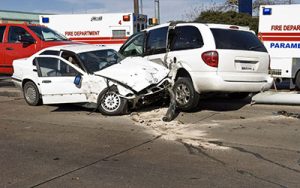
There was a sad story in Westford over the weekend, when a woman was hit and killed in a Market Basket parking lot. Police are still investigating, but according to media reports, the 64-year-old woman was putting groceries into the back of her Toyota Highlander SUV, which was hit by another vehicle. The impact caused her SUV to roll back on top of her.
This is not an isolated accident. Parking lot accidents and backovers are frequently reported in every community in Massachusetts, from Boston and Cambridge to Worcester and Framingham. But the latest accident raises the questions: have parking lots become as dangerous as the roads? And what can be done to improve safety? We should all be able to shop safely.
AAA reports 14 percent of all car accidents take place in parking lots. These can range from minor incidents, such as fender benders or someone opening a car door and hitting another vehicle. Other times, someone is seriously injured or killed, from backovers or speeding drivers.
AAA reports distracted drivers are contributing to parking lot accidents. Drivers are more focused on talking to other passengers, turning the radio dial or checking their cell phone. Others are too focused on finding the best parking spot.
In Massachusetts, parking lot car accidents have been reported in Acton, Wilmington and Natick.
- Acton Pedestrian Death at Trader Joe’s. In March 2017, an employee leaving Trader Joe’s in Acton was hit by a customer backing an SUV out of a parking space.
- Wilmington Parking Lot Accident. In September 2016, an elderly woman hit and killed a 52-year-old woman in a crosswalk near Rite Aid in Wilmington, then struck two parked cars.
- Natick Shopping Plaza Parking Lot Death. In November 2015, a speeding driver tore through the parking lot outside the Cloverleaf Mall in Natick, just across the street from the Natick Collection (or the old Natick Mall). She went right up onto the sidewalk, hitting and killing a pedestrian outside Harbor Freight Tools. Several others were seriously injured in the car crash.
- Snow Plow Parking Lot Accidents. Snow plow drivers often neglect to look for pedestrians on streets, parking lots and around snowbanks. Vehicles with engines are much easier for snow plow operators to see, but snow plow operators have a responsibility to use reasonable care and look for pedestrians as well as other vehicles. Massachusetts has seen several cases of snow plow drivers operating negligently and causing pedestrians fatal injuries. In 2015, two pedestrians in the Boston area were killed in parking lots by snow plow trucks. A 60-year-old employee at the Whole Foods store in Medford was struck and killed in the store’s parking lot. A few days earlier, a Weymouth woman was killed in the parking lot outside her condo complex.
Parking Lot Safety Tips for Drivers
Carefully pick your space. Make sure you have enough room to park and open your vehicle’s doors. When possible, back into a space so you have a full view of the parking lot when you leave. Also, try to avoid parking next to parents who have to get children in and out of car seats.
Plan your holiday shopping carefully. The days before Thanksgiving and the Friday before Christmas are two of the highest days for auto claims each year, according to AAA. These claims include parking lot accidents.
Take steps to avoid backover accidents. Many parking lot accidents result when drivers back out onto pedestrians without checking their blindspots or mirrors. Drivers can avoid accidents by coming up with a safety checklist for parking lots.
Make it a priority to look around your vehicle and under before you get in the car. Turn off your radio and turn off your cell phone. Instead, open your windows so you can hear any activity outside. Be prepared to stop. Do not rely on your vehicle’s cameras and sensors.
When in doubt, remember it may be better to wait until the parking lot clears out.
Distance yourself. Travel a safe distance behind other vehicles in a parking lot. How many times do you see a driver change their mind about where they want to park or quickly try to beat another car to a space?
Expect pedestrians. This is really the first rule of safety, but we include it last because we want you to remember it. You can always count on pedestrians being in a parking lot. Even though you may be in a rush, you need to slow down and travel with as much care as you would in a school zone, school parking lot or near a senior center.
Beware of snow plows and snow removal equipment. Drivers want to avoid the combination of snow banks, busy shopping times and parking lots, where snow plows and removal equipment are working. There are a lot of elements here and it may be easier to do your shopping another time.
About Breakstone, White & Gluck
With more than 100 years combined experience, the lawyers of Breakstone, White & Gluck specialize in representing those who have been injured in motor vehicle crashes. If you have been injured, learn your rights. For a free legal consultation, call 800-379-1244 or 617-723-7676 or use our contact form.
Redesign Ahead for Waltham’s Most Dangerous Roads and Intersections
Some of the region’s most dangerous roads and intersections are about to be redesigned in Waltham.
The City of Waltham released its 180-page transportation master plan last January. Some of the steps will drastically change the roads – for example, removing a traffic lane on Lexington Street, acquiring land to expand a road and a “super crosswalk.” The goal is to reduce Waltham car accidents and make it easier to travel the city. This is a 10-year master plan, but some changes have already been made.
Over the summer, the city removed a lane of traffic on Lexington Street, from Curve Street to Lake Street. The city’s goal was to reduce car accidents caused by speeding. The speed limit is 30 mph, but drivers often travel 40 to 45 mph.
The street was repainted with two southbound lanes and one northbound lane. Over the first few days, there was a lot of confusion. Some drivers continued to travel on the old lane – head-on into traffic in the new lane – putting vehicles at risk for a collision, according to a news report.
Report: Motor Vehicle Crashes Claimed More Lives in 2016
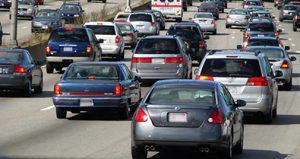
Fatal car crashes in the U.S. rose more than 5 percent in 2016, according to the National Highway Traffic Safety Administration.
The roads were far more dangerous in 2016, with 37,461 people killed in motor vehicle crashes across the U.S. This represents a 5.6 percent increase over 2015. Passenger and motorcyclist deaths reached an 8-year high. More cyclists and pedestrians were killed than in any year since the early 1990s.
The National Highway Traffic Safety Administration recently released the 2016 figures from the Fatality Analysis Reporting System (FARS).
Pedestrian and Cyclist Injuries
Nationwide, 5,987 pedestrians were killed in 2016, representing a 9 percent increase. This is the highest number of pedestrian deaths since 1990. That’s right – the highest in nearly 18 years. Cyclists (called pedalcyclists in the NHTSA report) were also in harm’s way. Across the country, 840 cyclists were killed last year. This is the highest number of cyclist deaths since 1991.
Rise in Passenger Deaths
Last year brought the most passenger deaths in the U.S. since 2008. There was a 4.7 percent increase – or 1,075 more lives lost – over 2015. This counts passengers of passenger cars, SUVs, vans and pick-up trucks. Passengers were only wearing seatbelts in 48 percent of car accidents where seat belt status was known, even though 49 of 50 states have seat belt laws. All 50 states have child passenger safety seat laws.
A good reason to wear a seatbelt: nearly 90 percent of victims who survived fatal daytime crashes last year were buckled in. About 84 percent of nighttime crash survivors were wearing seatbelts.
In Massachusetts, the law requires drivers and passengers to wear seat belts. This law is M.G.L. c.90 § 13A.
Failure to wear a seat belt in Massachusetts is an offense with secondary enforcement. Police officers must have another cause to pull your vehicle over, but if they do and you are not wearing a seat belt, you can be fined $25 for each offense and the violation could impact your insurance rate. You can be fined an additional $25 for each passenger under 16 who is not wearing a seat belt. Older passengers will receive their own $25 fine. But more important than fines, if you are not wearing a seatbelt, you really are putting yourself at great risk.
5 Percent Increase in Motorcycle Fatalities
More than 5,280 motorcyclists were killed in motorcycle crashes last year, a 5.1 percent increase. Again, this was the highest number of motorcycle deaths since 2008. This report did not include a state-by-state breakdown, but motorcyclist deaths in Massachusetts have been climbing in recent years. The Insurance Institute of Highway Safety has reported 44 motorcyclists were killed in Massachusetts in 2015. This was an increase from 2014 and accounted for 14 percent of all traffic deaths in Massachusetts.
Alcohol-Impaired Driving: 28 Percent of All Car Accident Deaths
Drunk drivers killed 37,461 people across the country in 2016, a 1.7 increase over 2015. In Massachusetts, 119 people died in crashes caused by drunk drivers in 2016. This was a 9.2 percent increase. Massachusetts was not alone; 38 states and Washington D.C. saw motor vehicle fatalities caused by drunk drivers rise last year. The other 12 states saw a reduction in fatalities.
Drivers of passenger vehicles were most likely to cause fatal drunk driving crashes; 4,250 drunk drivers caused crashes in 2016, up 3 percent from 2015. Drivers of light pick-up trucks caused 2,052 of these deaths. Drivers of light utility trucks, motorcyclists, vans and large trucks accounted for the rest of fatal crashes. Alcohol-impaired drivers of large trucks caused 58 deaths last year.
Distracted Driving Now Causes 9 Percent of All Motor Vehicle Crash Deaths
Distracted driving caused 9.2 percent of all motor vehicle crash fatalities in the U.S. last year. But the actual number of distracted driving deaths dropped 2.2 percent last year, to 3,450 deaths.
Teens Involved in Fatal Crashes Rise
Drivers age 16 to 20 were involved in 3.6 more fatal crashes in 2016. The actual number of young drivers who died was up .1 percent. But there were 3.6 percent more young drivers, ages 16 to 20, involved in fatal vehicle crashes last year.
About Breakstone, White & Gluck
The Boston car accident lawyers of Breakstone, White & Gluck have over 100 years combined experience representing those who have been injured by negligent or reckless driving. Our attorneys provide aggressive representation and represent those who have been injured by car accidents across Massachusetts, including in Boston, Cambridge, Somerville, Arlington, Waltham and Quincy. If you have been injured, contact our firm for a free legal consultation. Call us at 800-379-1244 or 617-723-7676 or use our contact form.
What Massachusetts Motorcyclists Should Know About Buying Auto Insurance
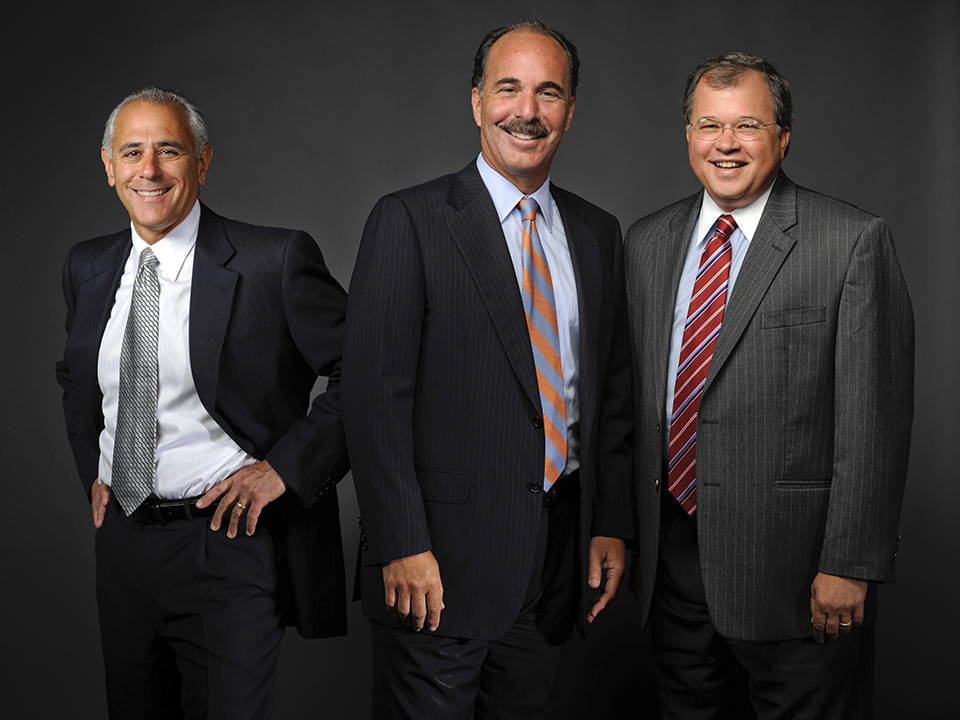
Attorneys Ronald E. Gluck, Marc L. Breakstone and David W. White, partners of the Boston law firm of Breakstone, White & Gluck. For more than 25 years, the firm has represented motorcyclists and others injured by reckless and negligent drivers.
Motorcyclists, before you start your engines, remember to check your Massachusetts auto insurance policy. Too many motorcyclists do not have enough coverage, which can be a costly and painful mistake if you are ever injured in a crash. For more than 25 years, Breakstone, White & Gluck has fought to obtain compensation for motorcyclists injured by negligent drivers. In recent years, our attorneys have vigorously pursued settlements of $3.75 million, $3.5 million and $1.25 million for three motorcyclists. We write about these Massachusetts motorcycle settlements on our website.
We work with auto insurance policies on a daily basis as we represent those injured on the road. We hope you are never injured, but it pays to plan and understand your auto insurance policy. After an accident, you may have to look to your own insurance policy, even if another driver caused the crash.
In Massachusetts, all drivers and motorcyclists must buy a minimum level of auto insurance. This is known as Compulsory Coverage. Motorcyclists need more and have a few special considerations. Your challenge is to identify what your potential needs would be following a crash. To start, you would need coverage for medical treatment and lost wages. Depending on the nature of your injury, you may be out of work for an extended period or worse, be left unable to return full-time. If you have a family and provide income for their support, you have more to consider.
The good news is you can plan and work with your insurance agent now to make sure your insurance coverage is adequate and that you have the right types. To help get you started, our attorneys have written these articles about Massachusetts auto insurance coverage. As a motorcyclist, make sure to read the section about Medical Payments coverage in our first article:
| Insurance Articles for Massachusetts Motorcyclists | |
|---|---|
| Massachusetts Motorcyclists: Buy the Right Types of Auto Insurance to Protect Yourself | |
| Understanding and Buying Massachusetts Car Accident Insurance | |
About Breakstone, White & Gluck
The attorneys of Breakstone, White & Gluck have over 100 years combined experience representing motorcyclists in the Boston area and across Massachusetts, from Brockton and Plymouth to Cape Cod to Framingham and Worcester. If you have been injured, take the time to learn your rights from one of our Boston motorcycle accident lawyers. Our attorneys can help you answer the key questions you may have following a motorcycle accident, such as “How much is my motorcycle accident claim worth?” and “How long will it take to obtain compensation for my injury after a motorcycle accident?” For a free legal consultation, contact us at 800-379-1244 or 617-723-7676 or use our contact form.
Slow Down! Boston, Cambridge and Other Cities Have Dropped Speeds to 25 MPH
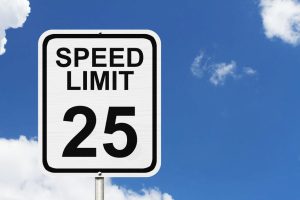 Over the past year, Boston, Cambridge and several other communities have lowered default speed limits from 30 to 25 mph, with a goal of creating safer streets for pedestrians and cyclists. Now it is Quincy’s turn.
Over the past year, Boston, Cambridge and several other communities have lowered default speed limits from 30 to 25 mph, with a goal of creating safer streets for pedestrians and cyclists. Now it is Quincy’s turn.
Last week, the Quincy City Council passed a measure establishing a speed limit of 25 mph, unless another speed limit is posted. The previous speed limit had been 30 mph. Once Mayor Thomas P. Koch signs the new law, officials will decide on an effective date.
In January 2017, the City of Boston dropped its default speed limit from 30 to 25 mph.
Lowering the speed limit was a key part of the Vision Zero Boston campaign, which was launched by Mayor Marty Walsh in 2015. The goal is to end traffic deaths and serious injuries in the City of Boston by 2030, through a combination of efforts, such as reducing speeds, eliminating distracted driving, and improving infrastructure for safer riding, walking and cycling.
While lowering speed limits was a critical step, the City of Boston was unable to act right away.
First, the city had to obtain approval from the state Legislature and Gov. Charlie Baker. Baker signed the Municipal Modernized bill in August 2016, which gave Boston, as well as cities and towns across the state, authority to reduce the default speed limit on local roads.
So far, these communities have reduced speed limits:
- Boston
- Cambridge
- Somerville
- Arlington
- Newton
- Randolph
- Scituate
- Quincy (approved by City Council)
Source: The Boston Globe.
Benefits to Slower Speed Limits
There is strong evidence that slower traffic means safer streets. An excellent example is New York City. In 2014, the city lowered speed limits to 25 mph on 90 percent of its streets. Over three years, traffic fatalities have decreased 23 percent and fell to the lowest number in the city’s history in 2016.
Boston city officials say that when crashes happen, faster vehicles are likely to cause the most serious injuries and fatalities. According to the City of Boston website, at 20 mph, there is a 17 percent likelihood that someone will be seriously injured or killed. At 40 mph, there is a 79 percent likelihood. Slower vehicles can be stopped more quickly, and the slower speeds allow for longer reaction times.
Read More
Distracted Driving Study: One in Four Drivers Are Using Cell Phones Before Crashes
Here is another reason for Massachusetts and other states to consider passing laws which ban handheld cell phone use by drivers. A new study reports one in four drivers who crashed was using a cell phone within the previous minute. Cambridge Mobile Telematics released the study last week to coincide with April’s Distracted Driving Awareness Month.
Our country needs a reminder this year. Motor vehicle accident deaths are on the rise, as the National Safety Council reported nearly 40,000 deaths in traffic crashes last year. In fact, the period from 2014 to 2016 saw the largest two-year increase in more than 50 years.
Meanwhile, this year has already seen hundreds of deaths across the U.S. Just last month came a horrific accident in Texas. A driver in Uvalde County, who was texting while driving his pick-up truck, crashed into a church bus, killing 13 people. Texas is one of 5 states which do not ban texting while driving.
New Distracted Driving
Over the past 18 months, Massachusetts-based Cambridge Mobile Telematics tracked about 1,000 car accidents via its smartphone app called DriveWell. Some insurance companies offered customers the app and provided incentives for safe driving.
The app uses a smart phone’s sensors to track driver behaviors, such as the way a phone is held. Drivers in stopped vehicles were not counted. The app tracks distracted driving behaviors at speeds greater than 9 miles per hour. Some 29 percent of the distracted drivers were traveling much faster though, over 56 mph.
Massachusetts is one of 45 states which bans the practice of texting while driving. The state’s ban has been in place since September 2010.
Drivers can still make phone calls, except for junior operators who are under age 18 and bus drivers. Though the Massachusetts state Senate did approve a handheld cell phone ban in 2016, the bill never cleared the state House of Representatives.
Allowing drivers to make handheld cell phone calls is a safety hazard and makes it hard for police to enforce the state’s texting while driving ban. Many argue police cannot differentiate between a driver picking up their phone to make a call or reaching for it to check their e-mail or text messages.
But the DriveWell study gives the state of Massachusetts another reason to consider a cell phone ban. Some 14 states already have these bans, including New Hampshire.
Reducing the Distractions in Your Car
Most people think of distracted driving as cell phone use, texting and checking your Facebook accounts. But the distractions run deeper. Distracted driving is really any behavior that takes your attention off the road, including eating, drinking or being engaged in conversations with passengers that take your attention off the road. Think about your own driving routine. How can you reduce the distractions?
About Breakstone, White & Gluck
The Boston car accident lawyers at Breakstone, White & Gluck have over 100 years combined experience representing those who have been injured in car accidents, truck accidents and motorcycle accidents. If you have been injured, learn your rights for seeking compensation. For a free legal consultation, contact our attorneys at 800-379-1244 or 617-723-7676 or use our contact form.
Can the City of Boston Be Held Liable for Self-Driving Accidents? Attorney Marc Breakstone Interviewed as Legal Expert for Boston Herald Article
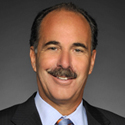 Attorney Marc L. Breakstone was quoted as a legal expert in a Boston Herald article titled “In Driver’s Seat With Insurance” (March 31, 2017). NuTonomy, the self-driving car company now testing its hands-free technology in Boston, has taken out a $5 million insurance policy to guard against lawsuits. Earlier this month, a self-driving Uber vehicle was involved in a car accident in Tempe, Arizona. Police found the Uber vehicle was traveling at 38 mph, below the speed limit, when the collision occurred and was not at fault. While there were no serious injuries, the accident has raised concerns.
Attorney Marc L. Breakstone was quoted as a legal expert in a Boston Herald article titled “In Driver’s Seat With Insurance” (March 31, 2017). NuTonomy, the self-driving car company now testing its hands-free technology in Boston, has taken out a $5 million insurance policy to guard against lawsuits. Earlier this month, a self-driving Uber vehicle was involved in a car accident in Tempe, Arizona. Police found the Uber vehicle was traveling at 38 mph, below the speed limit, when the collision occurred and was not at fault. While there were no serious injuries, the accident has raised concerns.
Attorney Breakstone was asked whether the City of Boston could be held liable if there is an accident involving NuTonomy. He said no, but read his full answer.
Attorney Reza Breakstone has written on the topic of self-driving cars and the legal questions they raise. In 2016, he co-wrote an article titled, “The Self Driving Car: Science Fiction Becomes Reality, Creating a Legal Quandary,” for The Litigator, the official publication of the Capital City Trial Lawyers Association in Sacramento, California.
Will Massachusetts Pass a Handheld Cell Phone Ban for Drivers?
As attorneys, we have represented hundreds of victims of motor vehicle crashes over the past three decades. In recent years, we have seen texting while driving and cell phone use by drivers multiply at an alarming rate, causing a stunning number of injuries and deaths. These injuries are preventable, but each year, drivers continue to reach for their phones and the toll rises.
According to the US Department of Transportation, cell phones are now involved in 1.6 million auto crashes each year, injuring 500,000 people and causing 6,000 deaths. While many states have already passed legislation to reduce distracted driving accidents, some are now considering additional measures, including Massachusetts.
Massachusetts lawmakers passed the Safe Driving Law in 2010, which banned texting while driving. There was no further action until January 2016, when the Massachusetts state Senate passed a bill banning handheld cell phone use. The ban would have allowed drivers to use hands free technology to dial and talk. According to the State House News Service, the Massachusetts House of Representatives gave initial approval to a similar bill but the legislation stalled.
With Governor’s Comments, Handheld Cell Phone Debate Returns to the News
 There was no update for several months. Then Governor Charlie Baker spoke in February, indicating he may not support a handheld ban.
There was no update for several months. Then Governor Charlie Baker spoke in February, indicating he may not support a handheld ban.
“I don’t want to get out of the business of making it possible for people to talk to other people when they’re driving. Because I think the texting thing is a big problem. I’m not sure I believe that the talking thing is,” Baker said during his “Ask the Governor” segment on WGBH Thursday. His comments were published by the State House News Service.
When the show’s co-host noted that drivers could use hands-free Bluetooth devices, Baker said:
“So now we’re just going to let people who can afford to put a Bluetooth in their new car to have the ability to talk when they’re in a car?” Baker responded. “But we’re not going to let anybody else? Hmm. Let me think about that one a little.”
Following the interview, The Boston Herald called on state lawmakers to resume their work to ban handheld cell phones: “Drivers in Massachusetts have proven that when it comes to using their phones behind the wheel they’re incapable of regulating themselves.”
When texting while driving was banned in 2010, texting was the major concern for distracted driving, the Herald wrote. Today, more people have smartphones which offer quick access to social media and other apps.
How Widespread is Texting While Driving in Massachusetts?
Critics say enforcement for Massachusetts’ texting while driving ban is challenging when drivers can hold their phones to talk, but not for other purposes. Police have worked through some of these issues. According to a Boston Globe analysis, Massachusetts police officers wrote 6,131 tickets in 2015, compared to 1,153 in 2011, the first year of the ban. Overall, between late 2010 and mid-April of 2016 when the analysis was published, 18,383 tickets were issued for texting while driving in Massachusetts.Drivers under 40 years old received the most tickets and many drivers got caught during Distracted Driving Awareness Month, when many local police departments receive safety grants for enforcement.
Where Proposed Legislation Now Stands in Massachusetts
Massachusetts is one of 46 states which have texting while driving laws. Just 14 states also ban handheld cell phone use, according to the National Conference of State Legislatures. New Hampshire, Vermont and Connecticut are among the early adopters.
Expect to hear more debate about a handheld cell phone ban in Massachusetts at some point in the future. While Governor Baker has voiced reservations, when the 2017-2018 legislative session began in January, the Massachusetts House of Representatives referred legislation for hands-free cell phone devices to the Legislature’s Joint Committee on Transportation.
Where to Find Distracted Driving Safety Campaigns and Information
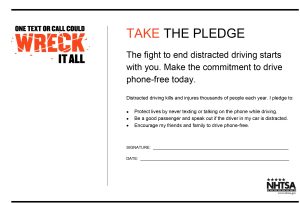
Safety campaigns are critical to preventing distracted driving accidents. There are many out there, offering programs for schools and information online. One effort is from the Massachusetts Academy of Trial Attorneys (MATA), which brings its “End Distracted Driving” program to high schools. We support this campaign. Two of our partners, Marc L. Breakstone and Ronald E. Gluck, serve on the MATA Board of Governors. Partner David W. White is a long-time member.
Another effort comes from the National Highway Traffic Safety Administration (NHTSA), which offers this pledge which family members can sign to promise each other they will not use a cell phone while driving.
Distracted Driving Prevention and Safety Campaigns:
Distraction.gov: Official U.S. website for distracted driving.
It Can Wait!: AT&T’s documentary to stop distracted driving.
Auto Insurance Too Expensive for Many Drivers
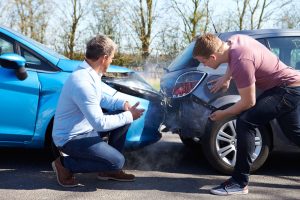 Under the law, Massachusetts drivers must purchase auto insurance before they get behind the wheel. But this is not always cheap. A new study reports auto insurance has become too expensive for 19 million Americans, making it important to shop around so you can find the most coverage for your budget.
Under the law, Massachusetts drivers must purchase auto insurance before they get behind the wheel. But this is not always cheap. A new study reports auto insurance has become too expensive for 19 million Americans, making it important to shop around so you can find the most coverage for your budget.
The report, “Study on the Affordability of Personal Automobile Insurance,” was released in January by the Federal Insurance Office of the United States Treasury. The Federal Insurance Office (FIO) was created by Congress with the passage of the Dodd-Frank Wall Street Reform and Consumer Protection Act of 2010. The office is charged with monitoring consumers’ access to affordable insurance products.
The report found basic liability automobile coverage is unaffordable in 845 zip codes where 19 million people live. Households in those areas had average auto insurance costs which exceeded more than 2 percent of average household income.
Massachusetts is the 10th most expensive state for car insurance, according to the Insurance Information Institute. Drivers pay on average $1,007 per year. New Jersey drivers pay the most nationally, with an average expenditure of $1,254.
The cheapest place to drive is Idaho. On average, drivers there pay just $553 for insurance.
Take time to understand your insurance policy. Before you buy car insurance in Massachusetts, remember these points:
Check out our chart. We have developed this chart and article, “Understanding and Buying Auto Insurance in Massachusetts.”
How much insurance do you need? Drivers must purchase Compulsory Coverage, which includes Bodily Injury to Others, Personal Injury Protection (PIP), Bodily Injury from an Uninsured Driver and Damage to Another Person’s Property. But you should also purchase Optional Coverage. Read more about the different types in our article, “Understanding and Buying Auto Insurance in Massachusetts.”
Underinsured and uninsured coverage. While these fall under Optional Coverage, they are essential. Far too often, drivers do not carry enough insurance of their own or outright ignore the law and do not buy insurance. In these cases, you will need to look to your own Underinsured and Uninsured coverage.
Discounts. You may be eligible for a discount if you purchase your auto insurance and homeowners insurance policies through the same carrier. Auto clubs may also offer discounts.
Cycling accidents. If you are a cyclist, you can purchase coverage to protect yourself in a bicycle accident through your auto insurance policy. It may cost more, but it is worth the investment. Many drivers do not carry enough insurance and you may have to turn to your own policy for compensation.
Shop around. This is your right. Massachusetts deregulated the auto insurance market in April 2008, giving drivers the freedom to research the market and find the best policy for their needs. Pay attention to deductibles; often that is where consumers can negotiate lower rates, but you will usually end up paying a higher deductible if you are found at fault for a car accident.
Factors which may increase your cost. Your age, the type of car you drive and the town where you live can all impact the cost of your auto insurance policy. Before you buy your next car, check in with your agent first.
About Breakstone, White & Gluck
The lawyers at Breakstone, White & Gluck have over 100 years combined experience representing those who have been injured in car accidents. If you have been injured, learn your rights. For a free legal consultation, contact 800-379-1244 or 617-723-7676 or use our contact form.


